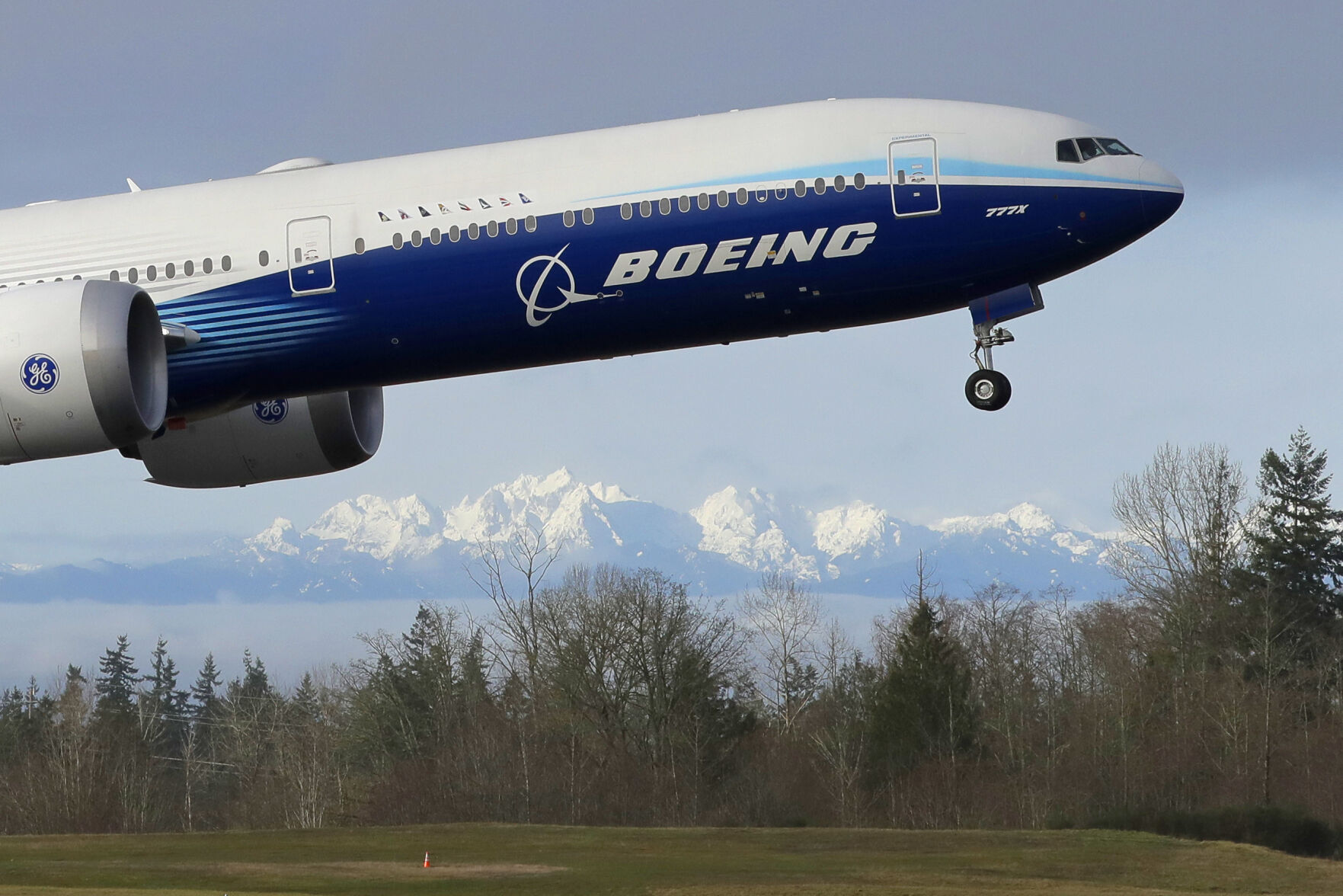Boeing said today it lost $663 million in the fourth quarter as higher production costs and supply-chain problems offset rising revenue.
It was another disappointing quarter for the aerospace giant, which has yet to recover from deadly crashes involving two of its 737 Max jets and a pandemic that depressed airline demand for new planes until recently.
The shares were down more than 2% in premarket trading.
The loss amounted to $1.06 per share. Excluding pension adjustments, the “core” loss was $1.75 per share. Revenue increased 35% from a year earlier, to $19.98 billion.
Analysts were expecting the company to earn 20 cents per share on revenue of $20.32 billion, according to a FactSet survey.
The loss, however, was much smaller than the $4.16 billion setback Boeing suffered in the fourth quarter of 2021, when it took a huge write-down for its airliner business. For a change, there were no major new charges or write-downs in the latest quarter.
Cash flow, a measure that excludes many forms of non-cash spending, topped $3 billion, allowing Boeing to report its first full year of positive cash flow since 2018.
Boeing said it is stabilizing production of new 737s at 31 per month and plans to speed that up to about 50 per month by 2025 or 2026, and will also boost production of 787s.
In a note to employees, CEO David Calhoun said the company is “making important strides” to improve performance. He expressed confidence “despite the hurdles in front of us.”
Boeing, based in Arlington, Va., has seen deliveries rise since regulators approved the 737 Max to fly again in late 2021 and after the company satisfied regulators that it fixed production problems on another plane, the larger 787 Dreamliner. Deliveries are an important source of company cash.
Sales have also picked up as airlines grow confident that demand for air travel is recovering from the worst of the pandemic.
Boeing’s defense and space business returned to a narrow profit in the fourth quarter after losing $2.85 billion in the previous quarter on huge charges related to several programs including finishing two new Air Force One presidential jets.
Jeff Windau, an analyst for Edward Jones, said in a recent note that deliveries of airline jets should continue rising, and recent defense-contract wins should also bring in revenue. He said, however, that risks include continued concern around safety of the Max and trade tensions that could hurt international orders.


